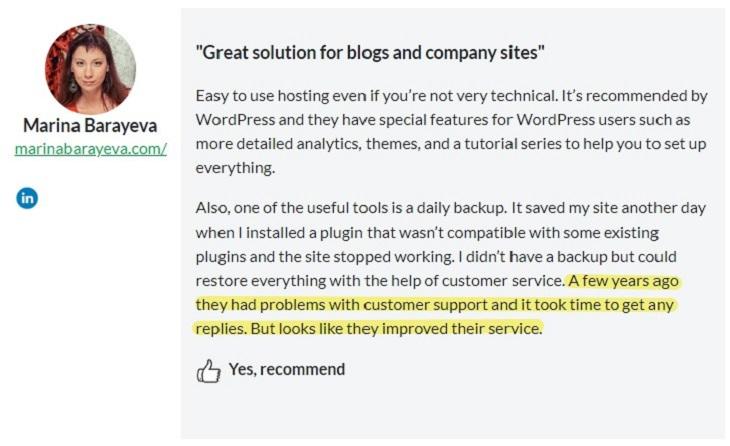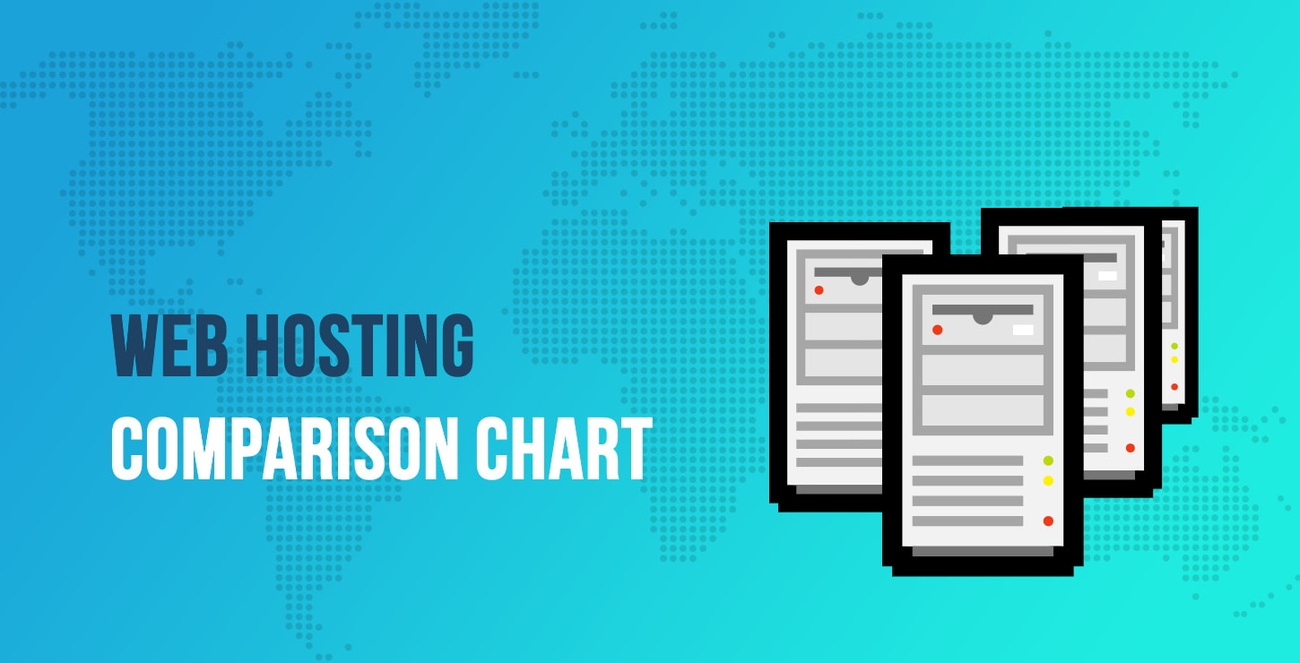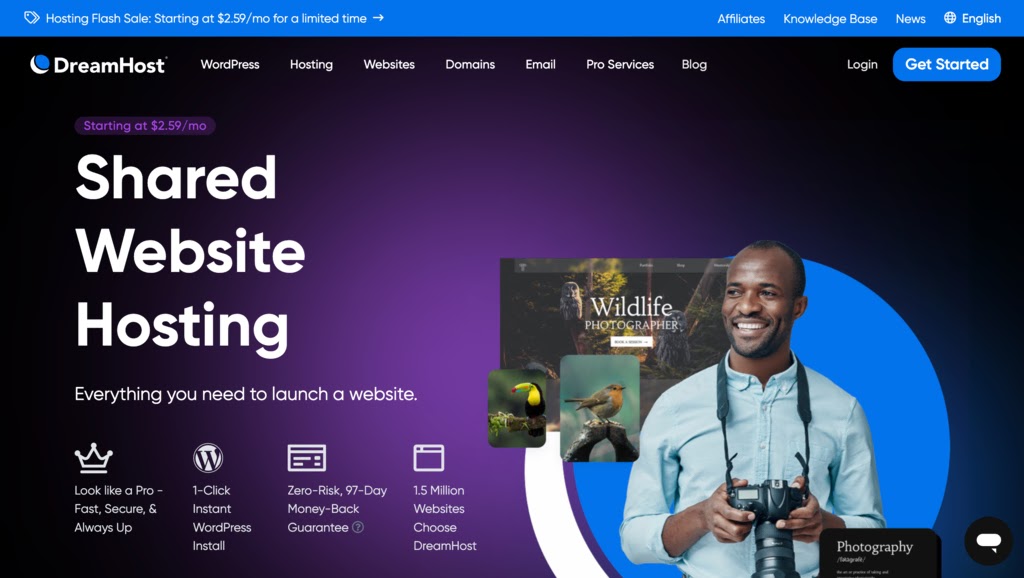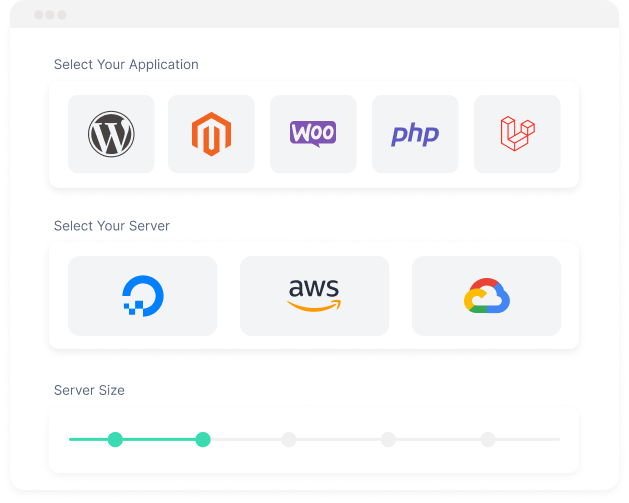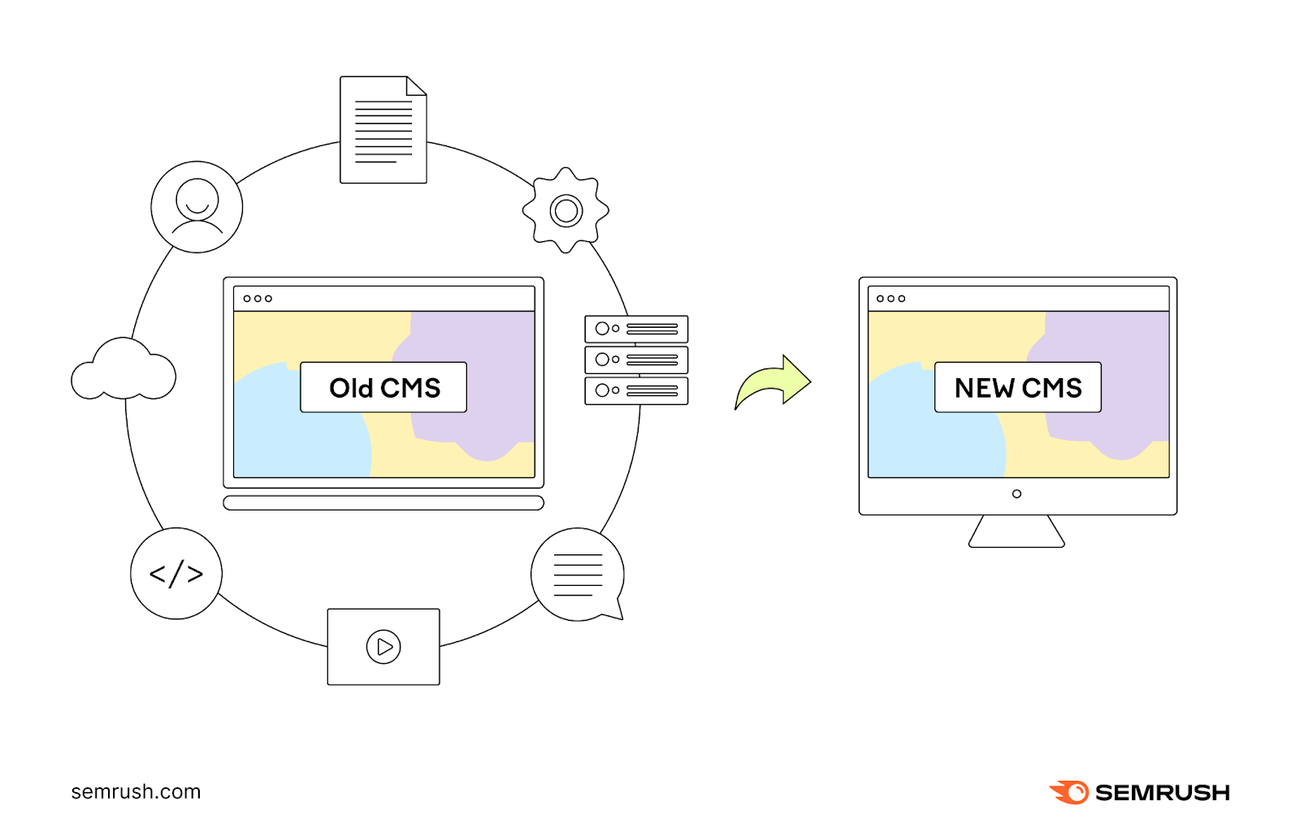In today's digital landscape, selecting the right web hosting provider plays a crucial role in the success of any online venture. A reliable web host ensures that websites load quickly, remain accessible, and provide a smooth user experience. As we approach 2024, the hosting industry continues to evolve, offering advanced features that cater to various needs, from simple blogs to complex e-commerce platforms.
This article aims to guide readers through the process of choosing the best web hosting provider for their specific requirements. It will explore key factors to consider when making a decision, highlight top hosting options for different types of websites, and provide insights into migrating to a new host. Whether you're launching a small business site, running a high-traffic blog, or managing an online store, this comprehensive overview will help you make an informed choice in the ever-changing world of web hosting.
Factors to Consider When Choosing a Web Host
When selecting a web hosting provider, several crucial factors come into play. These elements can significantly impact the performance, security, and overall success of a website. Let's explore the key considerations that should guide your decision-making process.
Uptime and Reliability
Uptime reliability is a fundamental metric that measures the availability and reliability of a website. It is typically expressed as a percentage, with higher percentages indicating better performance. Ideally, one should aim for an uptime of 99.95% or above to ensure that their site is accessible to visitors around the clock [1].
To achieve high uptime and reliability, consider the following aspects:
Server Reliability: The quality and durability of the physical servers used by the hosting provider are crucial. High-quality servers equipped with the latest hardware technology are less likely to encounter failures, thereby enhancing overall uptime [1].
Network Infrastructure: A robust network infrastructure with high-speed connections and minimal congestion is essential for maintaining high uptime. Look for providers that use multiple high-quality upstream providers to ensure continuous connectivity even if one connection fails [1].
Redundancy and Backup Systems: Effective redundancy measures, such as multiple data centers, mirrored servers, or redundant network components, ensure that there is no single point of failure. Backup systems contribute to uptime by allowing for quick recovery and restoration of data in case of hardware failures or other issues [1].
Speed and Performance
Hosting speed is a critical factor that influences the performance and user experience of a website. It primarily refers to how quickly data is transferred between the web hosting server and the user's device. Fast hosting speed is essential for maintaining high user engagement, achieving better search engine rankings, and ensuring the overall success of a website [1].
Key factors affecting hosting speed include:
Server Location: The physical location of a web host's servers can significantly impact the speed of data transfer. Choosing a provider with servers closer to your target audience can lead to quicker page load times [1].
Storage Type: Web hosting services use either Hard Disk Drives (HDD) or Solid State Drives (SSD) for data storage. SSDs are superior in terms of speed, offering faster data retrieval times and enhancing overall site speed [1].
Network Infrastructure: The quality and capacity of a web host's network infrastructure play a pivotal role in hosting speed. Advanced network setups with high-bandwidth capabilities ensure that data can flow freely and quickly between servers and visitors [1].
Available Resources: The allocation of sufficient CPU and RAM resources to a hosting account directly affects the speed at which a website operates. More resources mean that websites can handle greater traffic volumes and resource-intensive applications more efficiently [1].
Security Features
Security in web hosting is crucial for protecting websites from cyber threats such as hacking, malware, DDoS attacks, and data breaches. A good hosting company must ensure that their servers are safe for use and maintain the integrity, confidentiality, and availability of your website data [1].
Essential security features to look for include:
SSL Certificates: Secure Sockets Layer (SSL) certificates are essential for encrypting data between the user's browser and the web server. Look for a web host that offers free SSL certificates [1].
Firewalls: Web application firewalls (WAF) protect against malicious traffic and block common security threats [1].
Malware Scanning and Removal: Regular malware scans are crucial for identifying and removing malicious software from your website. Some web hosts offer automatic scanning and removal services [1].
DDoS Protection: Protection against Distributed Denial of Service (DDoS) attacks ensures that the website remains accessible even during massive traffic spikes designed to take it down [1].
Backups & Recovery: Regular, automatic backups protect against data loss in case of a security breach or accidental deletion [1].
Customer Support
Reliable customer support is essential when choosing a web hosting provider. Look for providers offering 24/7 support through multiple channels such as live chat, email, or phone. Additionally, scrutinize service level agreements (SLAs) to understand the provider's commitment to resolving issues promptly and efficiently [2].
When evaluating customer support, consider the following:
Availability: Opt for providers with 24/7 support to ensure assistance is available whenever you need it [3].
Support Channels: Look for hosts offering multiple support channels, including phone, live chat, and email support [3].
Response Time: Choose providers known for quick response times and efficient problem-solving [3].
Technical Expertise: Some hosts, like Kinsta, offer support from IT technicians and web developers, providing more specialized assistance [3].
By carefully considering these factors - uptime and reliability, speed and performance, security features, and customer support - you can make an informed decision when choosing a web hosting provider that best suits your needs.
Best Web Hosts for Small Businesses
Bluehost for Small Businesses
Bluehost stands out as a top choice for small businesses seeking reliable web hosting services. They offer a range of features tailored to meet the needs of growing enterprises, including domain privacy, unlimited parked domains, and unlimited subdomains [4]. These features contribute to a secure and flexible hosting environment, allowing businesses to expand their online presence as needed.
One of Bluehost's standout features is its automatic WordPress installation, making it an excellent option for small businesses looking to quickly establish their online presence [4]. This feature simplifies the process of setting up a website, saving time and effort for business owners who may not have extensive technical knowledge.
Bluehost offers several hosting plans designed to cater to different business needs:
- Basic: Ideal for single-site businesses
- Plus: Suitable for multiple websites
- Choice Plus: Offers additional features like free domain privacy, enhanced security, and free backups
The pricing structure is competitive, with plans starting as low as $2.95 per month for a 12-month term (Basic plan). The Plus and Choice Plus plans both begin at $5.45 per month, while the Pro plan starts at $13.95 a month, all for the same term length [4]. This tiered pricing allows small businesses to choose a plan that aligns with their budget and requirements.
SiteGround for Small Businesses
SiteGround is renowned for its impressive speed and reliability, making it an excellent choice for small businesses that prioritize website performance. The hosting provider consistently delivers high uptime statistics, ensuring that business websites remain accessible to customers around the clock [5].
Security is a top priority for SiteGround, offering comprehensive features to protect small business websites. These include:
- Robust SSL certificates
- Advanced malware protection
- Regular automated backups
SiteGround's customer support is a significant advantage for small businesses. They provide 24/7 assistance through multiple channels, including chat, phone, and ticket systems [5]. This level of support can be crucial for businesses that may not have dedicated IT staff.
The hosting plans offered by SiteGround are well-suited for small websites and blogs. They include features such as:
- Free SSL certificates
- Daily automated backups
- Unmetered traffic
SiteGround's pricing is competitive, with plans starting at $3.99 per month [5]. They also offer cloud hosting options and email hosting solutions, providing scalability for growing businesses.
HostGator for Small Businesses
HostGator is an excellent option for both novice and experienced website owners, making it suitable for small businesses at various stages of growth. Their hosting packages offer ample room for expansion, with features such as unlimited storage, email, and monthly databases [6].
For businesses new to website creation, HostGator simplifies the process with:
- Seamless domain registration
- Sufficient storage space
- One-click installations for over 75 open-source third-party apps, including WordPress and Magento [7]
HostGator's shared hosting packages are particularly robust, earning them recognition as an Editors' Choice winner in this category [6]. These plans provide small businesses with the resources they need to establish and grow their online presence effectively.
For businesses with specific needs, HostGator offers:
- eCommerce features for online stores, including wishlist creation and various payment options
- Professional content management system solutions, including Joomla and Drupal hosting
- Advanced features for dedicated website users, such as U.S.-based data centers and enhanced DDoS protection [7]
HostGator also provides a user-friendly website builder, making it easier for small businesses to create and maintain their online presence without extensive technical knowledge [6].
In terms of pricing, HostGator offers competitive rates, with plans that include a free domain name for those who sign up for at least 12 months of cloud, shared, or WordPress hosting [6]. This can be a cost-effective option for small businesses looking to establish their online presence.
Best Web Hosts for E-commerce Websites
In the United States alone, the eCommerce market is valued at more than $1 trillion, highlighting the immense potential for online businesses [8]. To tap into this market, choosing the right web hosting provider is crucial. E-commerce hosting offers specialized features that streamline various aspects of online store management, including payment gateway integration, high traffic handling, customer management, and compliance with tax and regulatory requirements [8].
WP Engine for E-commerce
WP Engine stands out as a WordPress-centric managed hosting provider, offering a suite of performance and integration solutions tailored for high-performance eCommerce stores [9]. By partnering with industry giants like Amazon Web Services and Google Cloud Platform, WP Engine enables businesses to build lightning-fast, scalable online stores using WordPress [9].
Key features of WP Engine for e-commerce include:
- WordPress optimization
- High-performance infrastructure
- Scalability options
- Integration with leading cloud platforms
Liquid Web for E-commerce
Liquid Web is a premium provider offering a range of hosting solutions suitable for e-commerce websites [10]. Their VPS hosting plans, starting at $15.00 per month, are particularly popular among online store owners [10]. Liquid Web's offerings extend to more advanced solutions like dedicated servers and Public Cloud hosting, catering to businesses of various sizes and needs [10].
Notable aspects of Liquid Web's e-commerce hosting include:
- Fully managed solutions with control panel options (InterWorx, cPanel, or Plesk)
- Powerful servers capable of handling significant traffic
- Standard DDoS protection and ServerSecure security package
- 24/7 customer support via live chat, phone, or tickets [10]
Liquid Web's partnership with Nexcess has expanded its portfolio to include managed WordPress and WooCommerce hosting options, making it an excellent choice for businesses looking to launch their online stores quickly [11].
Shopify Hosting for E-commerce
Shopify has emerged as a leading platform for e-commerce, offering a comprehensive solution for businesses of all sizes [12]. As a self-hosted software, Shopify provides features to manage all aspects of online retail, from website design to fast shipping [12].
Key advantages of Shopify hosting include:
- 99.99% uptime, considered the gold standard in the industry [13]
- Global Content Delivery Network (CDN) for fast access worldwide
- Automatic hosting updates and maintenance
- User-friendly interface and excellent customer support [12]
Shopify's popularity is evident in its market share, with more than one in four online businesses using it to power their stores [13]. The platform offers customizable templates, secure payment processing, and integrations with popular apps, making it an ideal choice for startups and growing businesses alike [12].
For entrepreneurs looking to start an e-commerce website with minimal technical expertise, Shopify provides an all-in-one solution. Its scalability allows businesses to grow from a small startup to an international brand with brick-and-mortar presence, all while using the same platform [12].
When choosing an e-commerce hosting provider, consider factors such as scalability, security features, performance, and ease of use. Whether you opt for a WordPress-centric solution like WP Engine, a versatile provider like Liquid Web, or an all-in-one platform like Shopify, ensure that the chosen host aligns with your business goals and technical requirements.
Best Web Hosts for Bloggers
DreamHost for Bloggers
DreamHost stands out as an excellent choice for bloggers, offering a range of features tailored to their needs. One of the most attractive aspects of DreamHost is its generous money-back guarantee, extending to 97 days for shared hosting services [14]. This allows bloggers ample time to test the platform and ensure it meets their requirements.
Even with its most affordable shared hosting plan, DreamHost provides bloggers with essential features:
- Free domain registration
- Unlimited traffic
- Free SSL certificates
- Daily backups
For WordPress users, DreamHost offers additional benefits, including pre-installed WordPress with automatic core and security updates [14]. This feature saves bloggers time and ensures their sites remain secure and up-to-date. Furthermore, DreamHost provides a free automated migration tool for those who already have an existing WordPress site [14].
DreamHost's commitment to open-source software, particularly WordPress, is evident in their optimized hosting environment specifically designed for the platform [15]. This dedication translates to better performance and compatibility for WordPress-based blogs.
For bloggers who prefer a more hands-off approach, DreamHost offers a drag-and-drop website builder with over 200 starter site templates covering various industries [15]. This tool allows bloggers to create and customize their sites without any coding knowledge, making it ideal for beginners or those who want to focus on content creation rather than technical aspects.
A2 Hosting for Bloggers
A2 Hosting is known for its high-speed performance, making it an attractive option for bloggers who prioritize website speed. The company claims to offer servers that are up to 20 times faster and can handle up to 9 times more traffic [14]. This increased speed and capacity can significantly improve user experience and potentially boost search engine rankings.
For bloggers on a budget, A2 Hosting's entry-level "Startup" plan offers:
- 100 GB storage
- Unlimited transfers
- Free and easy site migration
- Comprehensive security suite
The security features included in A2 Hosting's plans are particularly noteworthy for bloggers. These include a free SSL certificate, HackScan protection, anti-DDoS measures, a virus scanner, a firewall, and brute force defense [14]. Such robust security measures can provide peace of mind for bloggers, allowing them to focus on content creation rather than worrying about potential threats.
A2 Hosting's performance has been independently verified. According to a Pingdom website speed test, a test site hosted on A2 Hosting loaded in just under two seconds for a user based in New York, making it faster than 84% of all tested sites [16]. This level of performance can be crucial for bloggers looking to retain readers and improve their site's search engine optimization.
Hostinger for Bloggers
Hostinger has emerged as a popular choice among bloggers, offering a balance of performance, features, and affordability. In performance tests, sites hosted on Hostinger demonstrated impressive speed, with average response times between 450ms and 625ms [17]. This level of performance ensures that blogs load quickly, enhancing user experience and potentially improving search engine rankings.
Hostinger's entry-level Premium plan, starting at $2.99/month, offers a comprehensive package for bloggers:
- Free domain name with WHOIS protection
- 100 GB of SSD storage
- Unlimited bandwidth
- Weekly backups
- Unlimited free SSL certificates
- Comprehensive security measures including DDoS protection, a firewall, and a malware scanner [14]
For bloggers who value simplicity and ease of use, Hostinger provides a user-friendly control panel with essential tools and over 100 one-click app installations [17]. This feature allows bloggers to quickly set up and manage their sites without extensive technical knowledge.
Hostinger also offers managed WordPress hosting, which simplifies the technical aspects of running a WordPress blog. This service includes enhanced security, regular scans, automatic backups, and performance optimizations for faster load times [17]. Such features can be particularly beneficial for bloggers who want to focus on content creation rather than technical management.
Best Web Hosts for High-Traffic Websites
Kinsta for High-Traffic Sites
Kinsta stands out as a top choice for high-traffic websites, leveraging the premium tier of the Google Cloud Platform to deliver exceptional performance and reliability. This managed WordPress host offers a range of features tailored to handle substantial traffic volumes efficiently.
Key features that make Kinsta ideal for high-traffic sites include:
- Server-level caching via Nginx FastCGI cache
- Built-in CDN powered by KeyCDN
- Easy scalability with flexible plan upgrades
- Elasticsearch and Cloudflare Railgun add-ons for improved performance
- Transparent overages to handle traffic surges without site downtime
Kinsta's infrastructure is designed to optimize speed and reliability. The platform uses Google Cloud's fastest C2 and C3D virtual machines and integrates Cloudflare for enhanced performance and security [18]. With 35 global data center locations, Kinsta ensures fast load times for visitors worldwide.
Performance metrics for Kinsta are impressive, with the platform guaranteeing a 99.9% uptime on a monthly basis via an SLA [19]. In various tests, including seven-day, three-month, and 12-month periods, Kinsta has achieved a perfect 100% uptime [18].
For businesses concerned about security, Kinsta offers robust measures including free malware removal services, secure remote access over SSH or SFTP, and notifications about security vulnerabilities in plugins and themes [18]. The platform is SOC 2 compliant, ensuring enterprise-grade security, and adheres to GDPR regulations [18].
High-profile websites using Kinsta include CodeinWP, Ubisoft, TripAdvisor, FreshBooks, and Buffer [19], demonstrating its capability to handle significant traffic loads.
WP Engine for High-Traffic Sites
WP Engine positions itself as a "WordPress Digital Experience Platform," offering more than just hosting services. The platform is designed to handle high-traffic websites with a focus on performance, security, and scalability.
Key features of WP Engine for high-traffic sites include:
- Server-level caching via Varnish and Memcached
- Performance monitoring through New Relic and a dedicated Page Performance tool
- Built-in CDN service for faster global load times
- Nginx server stack
- AWS cloud infrastructure
WP Engine guarantees a 99.95% uptime via an SLA, excluding scheduled and emergency maintenance [19]. This level of reliability is crucial for high-traffic websites that cannot afford downtime.
The platform's infrastructure is optimized to run performance-intensive and high-traffic sites for all customers [20]. WP Engine leverages containerized components, including WordPress itself and databases, to ensure efficient resource allocation and scalability [20].
WP Engine's global network of data centers ensures high-performance experiences from origin to edge [20]. This distributed infrastructure is particularly beneficial for websites with an international audience.
Notable high-traffic websites hosted on WP Engine include AMD Developer Central, Under Armor, and Jobvite [19], showcasing the platform's ability to handle enterprise-level traffic demands.
Cloudways for High-Traffic Sites
Cloudways offers a unique approach to hosting high-traffic websites, providing a platform that emphasizes simplicity and performance. Their solution is designed to minimize the technical overhead for website owners while ensuring robust performance for high-traffic sites.
Key features of Cloudways for high-traffic websites include:
- Zero configuration setup
- One-click operations for common tasks
- Autoscaling servers to handle traffic spikes
- Focus on business growth rather than technical management
Cloudways' platform is built to provide a hosting solution that requires minimal intervention from the website owner. This "hands-off" approach allows businesses to concentrate on growth while the hosting platform manages the technical aspects of maintaining a high-traffic website [21].
The autoscaling feature is particularly valuable for high-traffic sites, as it automatically adjusts server resources based on traffic demands. This ensures that websites can handle sudden traffic surges without manual intervention or downtime [21].
Cloudways' emphasis on simplicity extends to their operations, with one-click functionality for many common hosting tasks. This streamlined approach can be particularly beneficial for businesses that want to maintain a high-performance website without dedicating significant resources to server management [21].
How to Migrate Your Website to a New Host
Preparing for Migration
Website migration is a significant process that involves transferring a website from one hosting environment or platform to another [22]. Before embarking on this journey, it's crucial to define the scope and objectives of the transition to ensure a smooth migration [22]. This preparation phase involves several key steps:
Define migration goals: Establish clear objectives for the migration, such as improving security, updating site structure, or adopting a new content management system [23].
Create a migration plan: Develop a comprehensive strategy that outlines the timeline, budget, and resources needed for the migration [23].
Assemble a team: Involve key stakeholders from various departments, including SEO specialists, web developers, content marketers, and UX designers [24].
Conduct pre-migration assessments: Complete essential tasks such as creating a content inventory, assessing your backlink profile, and performing a web accessibility check [22].
Schedule the migration: Choose a time during off-hours or a period of low traffic to minimize disruption [22].
Backing Up Your Website
Before initiating the migration process, it's crucial to create a complete backup of your website. This ensures that you have a safety net in case anything goes wrong during the transfer. Here's how to back up your website:
Back up website files:
Export the database:
Store backups securely: Save copies of your website files and database on your computer or a cloud storage service [25].
Transferring Files and Databases
Once you have a complete backup, you can proceed with transferring your website to the new host:
Set up the new hosting environment:
Import the database:
Upload website files:
- Using FTP:
- Using File Manager:
Update configuration files:
- Modify any necessary configuration files (e.g., wp-config.php for WordPress sites) to reflect the new database credentials and server settings.
Test the migrated website:
- Before pointing your domain to the new site, thoroughly test its functionality, including links, forms, and overall performance [22].
By following these steps, website owners can ensure a systematic and successful migration to a new hosting provider. Remember to monitor your site's performance and search engine rankings in the days and weeks following the migration to address any potential issues promptly [23].
Conclusion
Selecting the right web hosting provider has a significant impact on the success of any online venture. This article has explored various factors to consider when choosing a host, including uptime reliability, performance, security features, and customer support. We've also highlighted top hosting options for different types of websites, from small businesses and e-commerce platforms to high-traffic sites and blogs.
To wrap up, the web hosting landscape continues to evolve, offering advanced features to meet diverse needs. Whether you're launching a small business site, running a popular blog, or managing an online store, it's crucial to align your choice with your specific requirements. Remember, migrating to a new host is always an option if your current provider no longer meets your needs. By keeping these insights in mind, you'll be well-equipped to make an informed decision in the ever-changing world of web hosting.
FAQs
1. What are the top web hosting services to consider in 2024?
DreamHost is recommended for bloggers, Mochahost offers the best value, and Namecheap has excellent introductory plans. InMotion is known for its superior email offerings, while A2 Hosting specializes in niche hosting needs. Hostwinds is the top choice for extensive storage options, TMD Hosting stands out for its features, and HostGator is ideal for beginners.
2. Which web hosting company is the most reliable?
Bluehost is highly regarded as the most trusted web hosting service, consistently ranking at the top in various reviews, including the Best Web Hosting Services rating. It is particularly noted for its performance in the small business sector, where it ties with HostGator.
3. What are the growth projections for the web hosting industry?
The global web hosting market, valued at $60.9 billion in 2021, is projected to expand to $116.8 billion by 2027. This represents a Compound Annual Growth Rate (CAGR) of 11.6% throughout the period.
4. Which web hosting provider is the best and why?
Hostinger India is lauded as the best overall web hosting provider. Bluehost is preferred for WordPress hosting, and HostGator is known for its value-added plans. Turnkey Hosting offers budget-friendly options for dedicated hosting, while N6 Cloud excels in cloud-based solutions.
References
[1] - https://hostscore.net/how-to-choose-a-web-host/web-hosting-performance/
[2] - https://www.canspace.ca/blog/hosting-servers/factors-to-consider-when-choosing-a-web-hosting-provider-in-2024/
[3] - https://www.whatsthehost.com/6-best-hosts-for-site-owners-that-want-amazing-support/
[4] - https://www.bluehost.com/blog/best-small-business-web-hosting-options/
[5] - https://cloudsoftwarehq.com/product/siteground-hosting-features-and-benefits-2024/
[6] - https://www.pcmag.com/reviews/hostgator-web-hosting
[7] - https://www.newsweek.com/vault/small-business/hostgator-web-hosting-review/
[8] - https://wpengine.com/wordpress-hosting/
[9] - https://www.isitwp.com/hosting-reviews/ecommerce/
[10] - https://cybernews.com/best-web-hosting/liquid-web-review/
[11] - https://whoishostingthis.com/best-web-hosting/liquid-web-review/
[12] - https://www.shopify.com/blog/best-ecommerce-platforms
[13] - https://www.shopify.com/blog/ecommerce-hosts
[14] - https://www.hostinger.com/tutorials/best-web-hosting
[15] - https://www.dreamhost.com/hosting/shared/
[16] - https://www.isitwp.com/hosting-reviews/a2-hosting-review/
[17] - https://www.hostinger.com/web-hosting
[18] - https://10web.io/hosting-comparisons/a2hosting-vs-kinsta/
[19] - https://wpshout.com/best-high-traffic-wordpress-hosting-providers/
[20] - https://wpengine.com/platform/
[21] - https://www.cloudways.com/en/
[22] - https://www.shopify.com/enterprise/blog/website-migration
[23] - https://www.webfx.com/web-development/learn/website-migration-guide/
[24] - https://www.siteimprove.com/glossary/website-migration/
[25] - https://www.noupe.com/business-online/hosting-migration-guide.html


